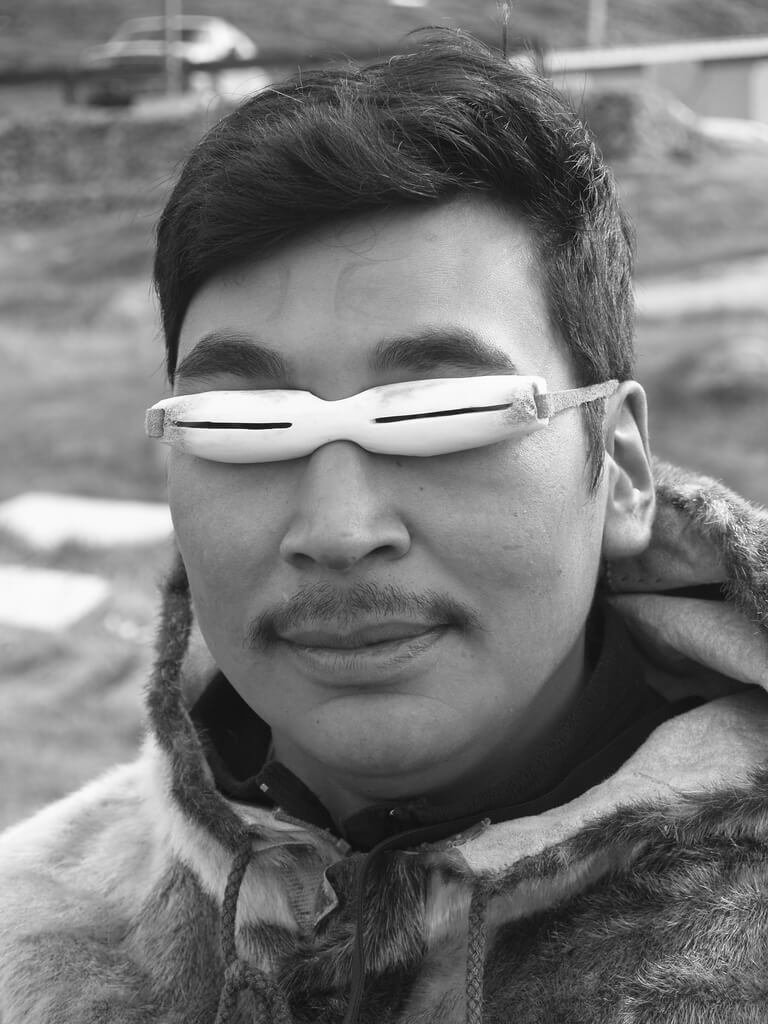Eye Protection
Early American Optical goggles with side shield
A magnifying glass is the simplest form of the basic light microscope. It consists of a single convex lens that exaggerates an object when viewed through it. Magnifying glasses, as well as lenses used for combustion, had been known since ancient times. Originally, however, refraction and the relationship between lens shape and magnification were unknown.
Magnifying glass with focus on paper.
At the turn of the first millennia, Ibn al-Haitham recognized the correlation between the curved surface of a semi-spherical lens and its powers of focal manipulation. About 300 years later, Alessandro di Spina, or maybe Salvino degli Armati (no one is quite certain which), put in practice the idea of modifying the magnifying glass to aide visual acuity.
Salvino degli Armati, possible co-inventor of eye glasses. Line engraving by Gustave
Individually handcrafted spectacles remained the norm for the next five centuries until a jewelers apprentice, William Beecher, felt he could do better in 1833. He started American Optical and in twenty years improved the production from 6 glasses a day to 15,000 per year.
Correcting eyesight is a technically challenging and therefore predictably modern thing. The notion that eyes are worth protecting, however, is comparatively antediluvian. The Inuit and Yupik people carved slits in caribou antlers to fashion some of the earliest snow goggles, while the Samoyed in far north Russia did so similarly, but independently, with metal.
Inuit man wearing snow goggles
It is a bit surprising then, once spectacles were common, that it took such a very long time for anyone to think of combining the two ideas. The melding of vision improving spectacles and eye protecting goggles was ushered in by the automobile revolution, as drivers grew tired of the inextricable eye watering that came with it.
The safety glasses pictured here were manufactured by the aforementioned American Optical and were designed and used to keep general workshop debris off the notoriously sensitive cornea.
Knowledge Sources
https://aoeyewear.com/our-story/
http://www.dickwhitney.net/ThisIsAO1962.htm
https://en.wikipedia.org/wiki/Goggles
https://www.encyclopedia.com/science/encyclopedias-almanacs-tran- scripts-and-maps/alessandro-di-spina
Image Sources
https://commons.wikimedia.org/wiki/File:Magnifying_glass_with_focus_on_paper.png
https://commons.wikimedia.org/wiki/File:Salvino_degli_Armati._Line_engraving_by_Gustave._Wellcome_V0000207.jpg





